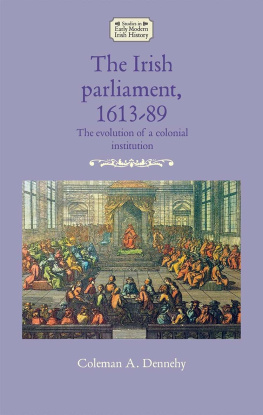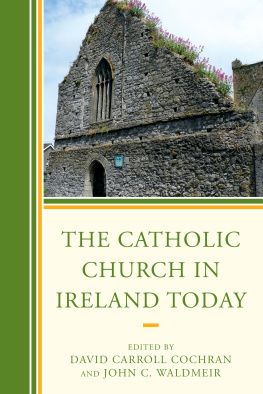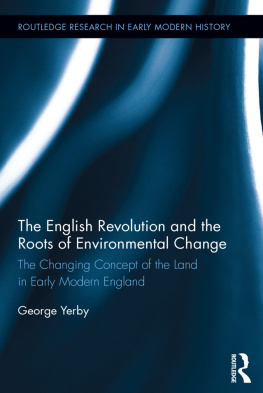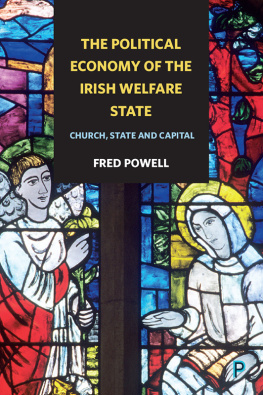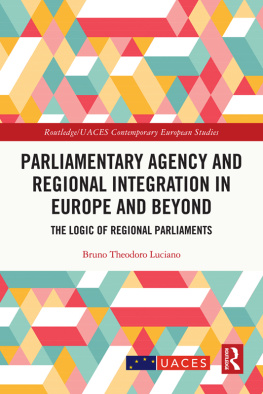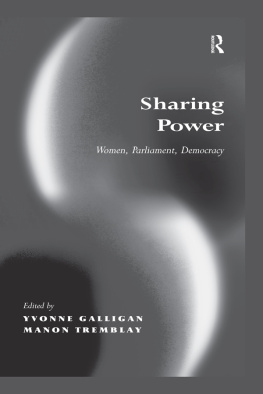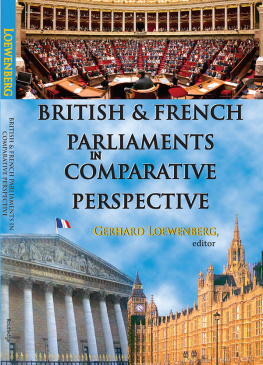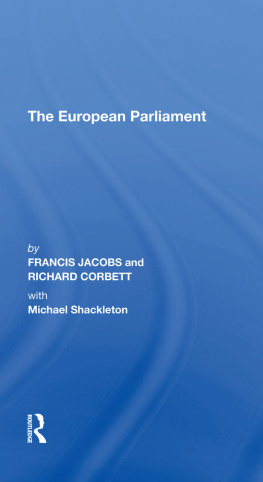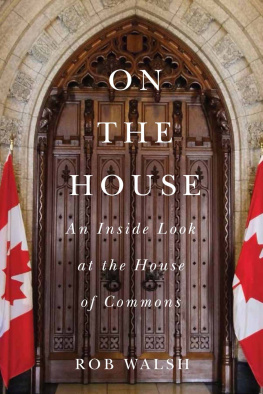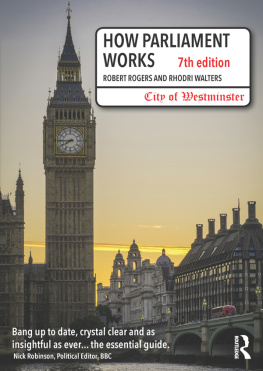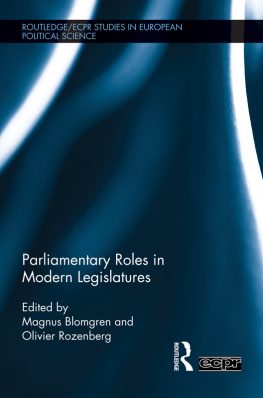The Irish Parliament, 161389
Series editors
DAVID EDWARDS & MICHEL SIOCHR
The study of early modern Irish history has experienced something of a renaissance in the last decade. However, studies tend to group around traditional topics in political or military history and significant gaps remain. The idea behind this series is to identify key themes and set the agenda for future research.
Each volume in this series comes from leading scholars from Ireland, Britain, North America and elsewhere, addressing a particular subject. We aim to bring the best of Irish historical research to a wider audience, by engaging with international themes of empire, colonisation, religious change and social transformation.
Already published
The plantation of Ulster: Ideology and practice
Michel Siochr and amonn Ciardha (eds)
Ireland, 1641: Contexts and reactions
Michel Siochr and Jane Ohlmeyer (eds)
The Scots in early Stuart Ireland: Union and separation in two kingdoms
David Edwards and Simon Egan (eds)
Debating Tudor policy in sixteenth-century Ireland: Reform treatises and political discourse
David Heffernan
Studies presented to the International Commission for the History of Representative and Parliamentary Institutions XCVIII
tudes prsentes la Commission Internationale pour lHistoire des Assembles dtats
The Irish Parliament, 161389
The evolution of a colonial institution
COLEMAN A. DENNEHY
Manchester University Press
Copyright Coleman A. Dennehy 2019
The right of Coleman A. Dennehy to be identified as the author of this work has been asserted by him in accordance with the Copyright, Designs and Patents Act 1988.
Published by Manchester University Press
Altrincham Street, Manchester M1 7JA
www.manchesteruniversitypress.co.uk
British Library Cataloguing-in-Publication Data
A catalogue record for this book is available from the British Library
ISBN 978 1 5261 3335 9 hardback
First published 2019
The publisher has no responsibility for the persistence or accuracy of URLs for any external or thirdparty internet websites referred to in this book, and does not guarantee that any content on such websites is, or will remain, accurate or appropriate.
Typeset in 10.5/12.5 Minion Pro by
Servis Filmsetting Ltd, Stockport, Cheshire
Dedicated to my mother, Elizabeth Dennehy
&
in memory of my father, Coleman Dennehy
Sir James Barry, 1st Baron Santry.
MP for Lismore in 163435, he was created 2nd baron of the Exchequer and thus attended the Lords as a judge in the 1640s. He was chairman of the Dublin convention in 1660 and, being created Baron Santry and appointed lord chief justice of the Kings Bench in that year, he attended the House of Lords as a judge and sat as a member in his own right. He desired the speakers chair while the lord chancellor was a lords justice, but was left disappointed.
Image reproduced by kind permission of The Honorable Society of Kings Inns.
The study of early modern Ireland has experienced a renaissance since the 1990s, with the publication of a number of major monographs examining developments in the country during the sixteenth and seventeenth centuries from a variety of different perspectives. Nonetheless, these works still tend to group around traditional topics in political, military or religious history and significant gaps remain. The idea behind this new series is to identify key themes for exploration and thereby set the agenda for future research. Manchester University Press, a leading academic press with a strong record of publishing Irish-related material, is the ideal home for this venture.
The fifth volume in the series is the second monograph to appear. Written by a leading young scholar with a growing reputation, the book focuses on the Irish Parliament, a key institution central to the tumultuous events of the seventeenth century. Despite its importance, knowledge of how parliament functioned has not been explored in detail, with students of Stuart Ireland lacking an equivalent to Richardson and Sayles seminal guide for the medieval period. This book finally fills that gap. Despite government efforts at harmonisation, it reveals that the early modern Irish Parliament developed along significantly different lines to its counterparts at Westminster and Edinburgh. While the book addresses the idea of Irish constitutional exceptionalism in detail, it also succeeds in placing the Irish Parliament firmly within the wider historiographical context of Stuart constitutional history. We expect it to establish itself as a foundational study for all students of the early modern period.
David Edwards
Michel Siochr
This book originates from research for which John McCaffertys expert guidance and encouragement was crucial. My initial foray into early modern parliamentary history was under the tutelage of James McGuire, and more recently I have had the benefit of Ivar McGraths mentorship. Along with these three from University College, Dublin, David Smith at Selwyn College, Cambridge helped this project along and I am most grateful for all of their support. Although this book was not purely the focus of it, my postdoctoral grant (Irish Research Council Marie Skodowska-Curie Elevate Fellowship) gave crucial support, time, and space to think further about the issues surrounding parliamentary, and particularly legal, procedure. Thanks also to Dennis Finn and Tony Brady at Malahide Community School for an earlier grounding in the historical sciences.
I would like to acknowledge the advice of Michel Siochr and David Edwards who kindly accepted my book into their series, Caro McPherson for her copy edit, and also Emma Brennan, Meredith Carroll, Lianne Slavin, and Alun Richards at Manchester University Press who guided me through the process in a most expert and patient fashion.
More generally, in Ireland I have had colleagues and students from whom I have learned much: Neil Johnston, Eoin Kinsella, Frances Nolan, Emma Lyons, John Bergin, Suzanne Forbes, John Cronin, Ida Milne, Lynsey Black, Ian ODonnell, Marian Lyons, Raymond Gillespie, Colm Lennon, Sarah Feehan, Shane Lordan, Elaine Pereira Farrell, Liam ORourke, Jennifer Wells, John McGrath, Patrick Walsh, Noreen Giffney, David Hayton, Jane Ohlmeyer, Tadhg hAnnrachin, and of course Brd McGrath.

